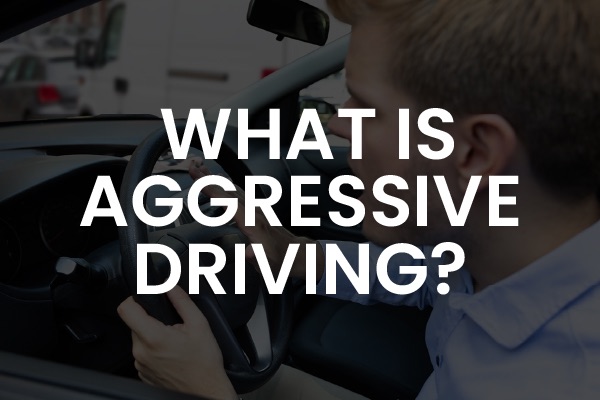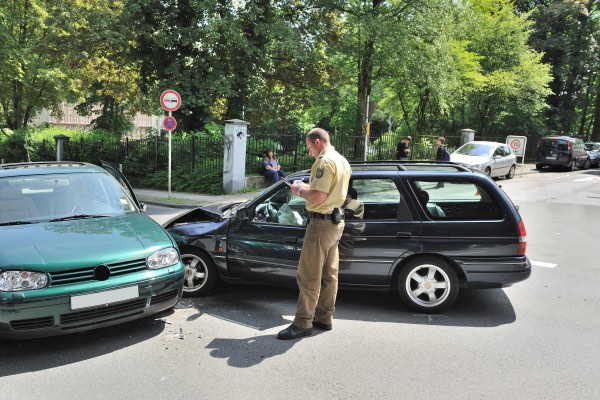
It’s a hectic Monday morning. You are running late for work, your child missed the bus so now you have to run them to school, and you are pretty sure you left your coffee sitting on the counter at home.
Already aggravated, you get even more upset when the car in the lane next to you suddenly decides they want to be in your lane and switches lanes without giving you a proper warning. You slam on the brakes to avoid hitting them and mumble a couple of choice words under your breath.
However, the car next to you experiences the same issue when the erratic driver once again cuts another individual off. While they avoid the initial collision of running into the back of them, they take their anger out by speeding around the car that cut them to move right back in front of them.
In their rage though, they failed to miss the driver who was already there first and merged right into them, causing a wreck.
Road Rage
What you just witnessed (and experienced a bit of yourself) is what many drivers call road rage. Legally, it is called aggressive driving. While you didn’t let your anger get the best of you, the second driver surely did, which is why they wound up in an accident and you didn’t.
In this article, the dedicated car accident attorneys at the Hernandez Law Group, P.C. take a closer look at aggressive driving and its effect on your safety and that of other drivers.
Understanding Aggressive Driving
The National Highway Traffic Safety Administration defines aggressive driving as “the operation of a motor vehicle in a manner that endangers or is likely to endanger persons or property.”
This term was officially coined in the 1990s and was used to describe the category of driving that exhibited dangerous on-road behaviors. These behaviors include but are not limited to the following:
- Driving at excessive speeds
- Following too closely
- Weaving through traffic
- Running traffic lights and stop signs
- Yelling or gesturing to other drivers while on the road in an offensive manner meant to provoke confrontation
- Driving illegally on the shoulder or sidewalk
- Failing to use a turn signal during turns or changing lanes
- Physical assault
- In worst cases, murder or vehicle manslaughter
The Psychology Behind Aggressive Driving
Since it was brought to national attention during the 1990s, many psychologists have dedicated their careers to understanding the psychology behind aggressive driving. The American Psychological Association has taken a keen interest in the topic and is continuing an ongoing study to further understand what exactly contributes to a driver’s road rage.
This particular study was started in 2014 in hopes of finding ways to decrease the occurrences of road rage and aggressive driving, creating safer roadways for all individuals across the United States. Here is what they have found:
- Young males are more likely to experience road rage
- Crowded roads often boost anger behind the wheel
- Individuals who are suffering from displaced anger or are in high life stress situations are more likely to experience road rage
- People who repeatedly experience road rage are more likely to misuse alcohol and drugs
High-Anger Drivers
Psychologist Jerry Deffenbacher, Ph.D., at Colorado State University also found the following concerning correlations in drivers who openly admit to being high-anger drivers (or drivers who get angered easily) as compared to those who claim to be low-anger drivers.
- High-anger drivers are more likely to engage in hostile and aggressive thinking.
- They are more prone to insult other drivers.
- They are more prone to expressing their anger and disbelief about the way others drive.
- They often have thoughts of revenge, even in the form of physical harm.
- High-anger drivers are more likely to take risks on the road, including:
- Traveling 10-20 mph over the speed limit
- Rapidly switching lanes
- Tailgating
- Entering an intersection even after the light has turned red
- Individuals who have admitted to being high-anger drivers were found to have been in twice as many accidents as those who were low-anger drivers.
What Can We Gain From Their Findings?

One of the biggest takeaways from the findings above is that while some individuals are more prone to aggressive driving than others, it is still a choice to engage in those activities.
If you know that you are already in a state of agitation, it is best to allow someone else to drive or wait until you have cooled off before heading out on the road.
If you start to feel yourself getting highly agitated to the point where you know you will be more likely to engage in dangerous behaviors, it is best to pull over somewhere safe and cool off.
While we all get angry, acting on that anger on the road to get back at another driver not only puts your life in danger but also the lives of those around you. In the long run, those few minutes of anger are not worth your life or anyone else’s.
How Can I Keep Myself Safe If I Encounter an Aggressive Driver?
If you find yourself at the receiving end of someone’s anger while on the road, the important thing is to remain calm and continue to practice safe driving techniques. It is best to stay away from the angry individual. However, if you find that they are not giving up, you need to do the following:
- Remain calm. Do not try to engage with the individual or change the way you are driving to get away from them. Doing so in panic can increase your chances of getting into an accident.
- Do your best to stay out of the way of the angered individual. Do not engage with them or try to escalate the situation.
- Do not challenge the aggressive driver. Don’t speed up or try to beat them at the next light. Do not try to hold your position on the road. If they want to get ahead of you, just let them go.
- Make sure you and everyone in your vehicle are wearing their seatbelt. While doing the above is a way to decrease the risk of an accident, the risk is never zero.
- Don’t make eye contact. Doing so can be seen as a challenge or a threat, making them angrier.
- Ignore them.
- If the aggressive driver is continuing to pursue and harass you, either you or someone in your car needs to contact the police. Do not try to calm, engage, or interact with the individual yourself.
Were You the Victim of Aggressive Driving or Road Rage?
If you or a loved one was the victim of an accident caused by aggressive driving, you do not have to face the road to recovery alone. The Hernandez Law Group, P.C. can help! Our caring team of attorneys is more than happy to talk with you about your case during our complimentary consultation and give you guidance on your next course of action.
We will fight hard for you to ensure that you get the compensation you deserve while you focus on recovering from your injuries. Contact our team today for more information on our services or to schedule a consultation.
